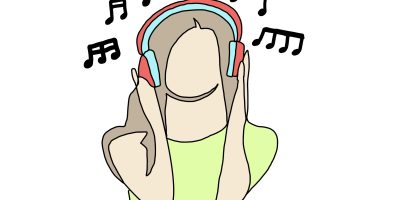I don’t know about you, but there’s no greater feeling than that of opening up a new book, whether it be fresh off the shelf of a bookstore, or a used one that has had its pages turned many times before. Whenever I buy a book, I like to think that the physical copy I hold in my hands contains within itself knowledge, stories, and the desire to be read. The smell of the pages, the binding, the cover, everything that makes the experience of reading it so much fun. Try experiencing that on a Kindle! Books have been a source of knowledge for centuries, dating all the way back to ancient Egypt, when they were simply scrolls made from Papyrus. In Mesopotamia, ideas were conveyed through tablets made from clay. Throughout history, physical books have evolved from beech bark and bamboo to hardcover and paperback copies we have today. They are civilization’s creations, and tangible artifacts that hold knowledge of our past, present, and future. Just feeling the weight of holding a book in your hand gives it more value and makes it feel so much more real than just an e-book on a phone or tablet. You can also physically feel your progress through a book as you read it, making it all the more captivating and interactive, since there is a certain texture to each page, and a haptic experience of turning the pages. A thin e-reader pales to the experience one can get with an actual paper book.
Books are also a means by which we can share our ideas and stories with others, and physical copies give us the opportunity to share and exchange books with others easily, something that is hard to do with an e-book. You can gift them to friends or you can donate them to a charity or library. E-books are trapped in whatever device they are contained in, and can’t be recirculated or recycled. I’m not even going to go into the nitty gritty of the cons associated with reading books using a phone, tablet, or e-reader. I’ll just go through a few of them. Firstly, e-books can result in eye-strain due to the light from the screens, which is not something you can experience when you read an actual book. Sure, you may say that books can still cause eye-strain and some screens can be set to have low-light intensity and no glare. Even with that, you wouldn’t be able to read in the sunlight. I also won’t delve deep into the problems of wi-fi, chargers, and batteries…items that you’ll never need if you’re reading a paperback.
Imagine curling up with a good book in front of a fireplace with a warm cup of hot chocolate. You must admit that the picture you just saw in your head had a physical book and not an e-book in it, right? See, you can’t substitute the comfortable feeling of reading a book with an e-book. Furthermore, you can’t really forge an emotional connection with an e-book like you can with an actual book. I know for a fact that some of my most precious possessions are my favorite books sitting on my bookshelf. They are real, and have a home where I can build a collection of my favorite books and authors. In addition, some book series’ have covers that tell a story or create a pattern when placed in order on a bookshelf. Take a look at Osamu Tezuka’s ‘Buddha’ series, which chronicles the life of the Buddha. If each book is lined up on a shelf, you can literally see the “shelf life” of the Buddha, from young to old. This is something that’s impossible to achieve with e-books.
Have you ever had that one blanket or stuffed animal from your childhood that’s still in a box labelled “childhood memories” in your basement somewhere? Usually, these are objects that represent your childhood and that you can never part with, no matter how old you get. Books are the same. They have a permanence associated with them that gives them a long-lasting power. We still have books from as long as 1,000 years ago, and they are still preserved in the form that they were made in, albeit with a little wear and tear. Nevertheless, they are still here, and the content within them is still accessible. It is very much possible that you can forever lose a digital piece of information stored on your laptop or phone if it is destroyed, making it close to impossible to retrieve. However, with real books and millions of copies, we can be sure that they will still be here for hundreds, if not thousands of years more.
Ultimately, books allow the reader to have a meaningful connection with their stories and the authors who wrote them. They love anyone who opens them, and unlock the gates of your imagination to new ideas and knowledge. Printed books are yours for life, and can catalog memories and intellectual journeys as you build up your collection. In the end, it all comes down to the difference between having the experience of reading a book on a digital device versus reading the same book as a physical copy, with each turn of the page representing another piece of knowledge gained, and a deeper descent into whatever exciting adventure the story is taking you on. Which would you choose?



Leave a Reply